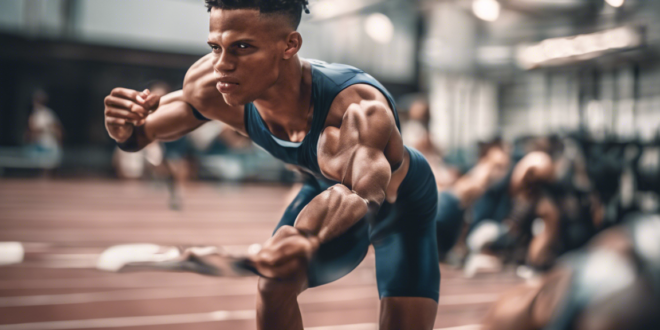7 Essential Nutrition Strategies to Supercharge Your Student-Athlete’s Performance
Raising a student-athlete requires more than just cheering from the sidelines. Nutrition plays a critical role in athletic performance, academic success, and overall development. Parents and coaches know that what young athletes eat directly impacts their energy, strength, recovery, and ability to excel both on the field and in the classroom.
Understanding the Unique Nutritional Needs of Student-Athletes
Student-athletes have significantly different nutritional requirements compared to their less active peers. Their bodies are constantly demanding more energy, nutrients, and support to maintain peak performance through intense training, competitions, and academic challenges. A strategic approach to nutrition can make the difference between simply participating and truly excelling.
1. Balanced Macronutrient Intake: The Foundation of Athletic Nutrition
Proper nutrition begins with understanding macronutrients. Carbohydrates, proteins, and healthy fats each play a crucial role in an athlete’s diet. Carbohydrates provide immediate energy, proteins support muscle repair and growth, and healthy fats contribute to hormone production and sustained energy release.
Recommended macronutrient breakdown for student-athletes:
• Carbohydrates: 55-65% of total daily calories
• Proteins: 15-20% of total daily calories
• Healthy Fats: 20-30% of total daily calories
2. Timing is Everything: Strategic Meal Planning
When student-athletes eat is almost as important as what they eat. Proper meal timing can significantly enhance performance, recovery, and overall energy levels. Creating a structured eating schedule that aligns with training and competition times is crucial for optimal results.
Key meal timing strategies include:
• Pre-workout nutrition: Consume easily digestible carbohydrates and lean proteins 1-2 hours before training
• Post-workout recovery: Eat within 30 minutes after exercise to maximize muscle repair
• Consistent meal intervals: Aim for 4-6 smaller meals throughout the day
3. Hydration: The Overlooked Performance Enhancer
Proper hydration is often underestimated but plays a critical role in athletic performance. Dehydration can lead to decreased concentration, reduced physical performance, and increased risk of injury. Student-athletes should develop a comprehensive hydration strategy that goes beyond just drinking water during practice.
Hydration recommendations:
• Drink 16-20 ounces of water 2-3 hours before exercise
• Consume 7-10 ounces every 10-20 minutes during activity
• Replace electrolytes during intense or prolonged training sessions
4. Micronutrient Power: Beyond Calories
While macronutrients provide energy, micronutrients are essential for optimal physiological functioning. Vitamins and minerals support immune function, bone health, muscle recovery, and overall athletic performance. Student-athletes should focus on consuming a diverse range of nutrient-dense foods.
Key micronutrients for athletes include:
• Calcium and Vitamin D for bone strength
• Iron for oxygen transportation
• Vitamin C for immune support
• B-complex vitamins for energy metabolism
5. Supplement Wisdom: Smart and Safe Nutritional Support
While whole foods should always be the primary source of nutrition, carefully selected supplements can provide additional support. However, it’s crucial to approach supplementation with caution, consulting healthcare professionals and avoiding prohibited substances.
Recommended supplements for student-athletes:
• Multivitamin
• Protein powder
• Omega-3 fatty acids
• Vitamin D
• Probiotics
6. Mental Performance Nutrition
Nutrition isn’t just about physical performance. The right diet can significantly impact cognitive function, concentration, and mental resilience. Student-athletes need nutritional strategies that support both their physical and mental capabilities.
Brain-boosting nutritional strategies:
• Omega-3 rich foods for cognitive function
• Complex carbohydrates for sustained mental energy
• Antioxidant-rich foods to reduce mental fatigue
• Adequate hydration for improved concentration
7. Individualization: The Key to Nutritional Success
No single nutritional approach works for every student-athlete. Factors like age, sport, training intensity, body composition, and individual metabolism necessitate personalized nutritional strategies. Working with registered dietitians specializing in sports nutrition can provide tailored guidance.
Conclusion: Nutrition as a Competitive Advantage
By implementing these comprehensive nutritional strategies, student-athletes can transform their diet from mere sustenance to a powerful performance tool. Proper nutrition becomes a competitive advantage, supporting physical prowess, mental sharpness, and long-term athletic development.
Remember, great athletes aren’t just born—they’re carefully nurtured through intelligent, strategic approaches to nutrition, training, and personal development.
 Good Calories Guide GoodCalories Guide focuses on nutrition, healthy eating, and overall wellness. The site offers practical insights into evidence-based dietary practices, including tips for specific lifestyles such as veganism, keto, and family-friendly meal planning. It also addresses unique nutritional needs for individuals with conditions like diabetes or food allergies, while providing quick and accessible recipes to make healthy living a sustainable and enjoyable choice.
Good Calories Guide GoodCalories Guide focuses on nutrition, healthy eating, and overall wellness. The site offers practical insights into evidence-based dietary practices, including tips for specific lifestyles such as veganism, keto, and family-friendly meal planning. It also addresses unique nutritional needs for individuals with conditions like diabetes or food allergies, while providing quick and accessible recipes to make healthy living a sustainable and enjoyable choice.


